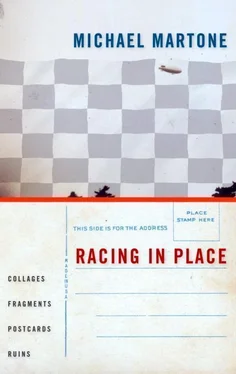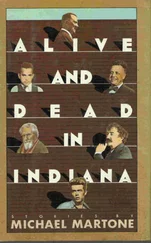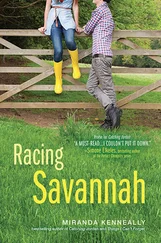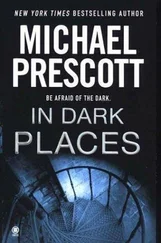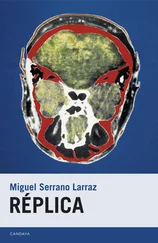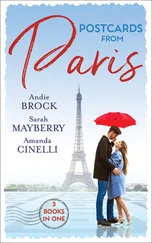The Waiting Room
This is nothing. I know this is nothing compared to what has happened to other people, what is happening to people now, what is happening to the people here, say, in Doctor X's waiting room. It is nothing in comparison. It wasn't bodily trauma in any way. I am not physically ill. I am not dying. Nor have I struck anyone. I do not feel like striking anyone. This is about something that happened at work, I keep telling myself, something that is now way out of proportion. What happened finally, I think, was I couldn't fix things when I thought I could. I thought things could be fixed. Or I thought things needed fixing. Something. It occurs to me, in the waiting room, that since last March I have been sitting in my office listening to students and colleagues tell me stories about the consequences of D's actions and being helpless, really. How do I feel in the waiting room? Embarrassed. Embarrassed that I am so stunned by this nothing. Embarrassed that I have hired a professional listener to listen to my tale. And I am taken by the luxuriousness of this, of hiring an audience, this utter indulgence. I am depressed, depressed with a small D. To me, the depression is a kind of small black dot, a dot no bigger than the period at the end of the sentence, at once an insubstantial speck of ink while at the same time a collapsed world with the specific gravity of a black hole. I am taken by this paradox. I am insisting too much on this nothing. What has happened is, in my professional opinion, boring, yet I am deeply fascinated with the intricacies of the events. The storyteller in me keeps telling me there is no story here, really. But I can't stop wanting to make it a story. I can't stop telling it. This is nothing but it has become everything. By calling it nothing I can't rid myself of it. And I am quite conscious of the inconsequence of all this to others. They see it as the nothing it is. They suggest, politely, at the end of another rendition that I talk to someone. And here I am. Here I am ready to tell this story again.
A Room in a Basement of a Church
In the middle of things, a friend takes me to an open AA meeting. He suggests that, though I don't drink, alcohol in this crisis has profoundly changed my life. D was drunk when he threw the drink, and he did throw a drink, and has offered that he was drunk as a mitigating circumstance and has indicated that he has entered the program. He is sober now, he says. A changed man. The room in the basement of the church feels, oddly, like my classroom where stories are told, tables and chairs, but it is not like my classroom. The framing of the storytelling is differ ent. And my friend who is a literary scholar tips me as to the aesthetic differences to come. He tells his story to us without the literary flourish I know he knows. He has told me that the notions of creativity and originality are different in this room. The stories are supposed to be repetitious and predictable. And they are. They are relentless in this relentless style, their stylelessness. That's the point. The One Day here does not lead to a rising action, climax, and denouement but to the next one day and the next.
In Camera
After another day of meetings, I sit in the living room, the answering machine on, screening calls. My wife and I watch television and, during the commercials, I rehearse for her the scrolling events at school. The phone rings, and we both start. We hear an angry voice laying down a track on the tape. New threats and curses. An aggressive gloss of the very version of events I have just related to my wife. All night, every night, for months, voices emanating from the machine. "Talk to me, you sorry son of a bitch" or "Call me, I've got something to say to you." The little box of the TV we watch seems to have only one story to tell. Scandal and corruption everywhere it seems. The detective stories, all the investigations only reveal ambiguous evidence. Locally, the story I am involved in disappears in the local news as another sexual harassment investigation blooms at the nearby airbase. Men and women fighter pilots fighting. My wife and I, everyone I know, longs, I think, for an actual dogfight. The gray jets screaming and looping in the gray skies above the city of S. Instead there are the usual waves of statements and denials, charges and counter-charges issued for the press with or without attribution. The whole catastrophe. Behind the stock footage of the F-16s skidding down the runway in the late-season snowstorm, I imagine the G-suited pilots in the cockpit of their offices, the warrens of their bureaus, the meetings and workshops, the sessions with consultants. It is the season of debriefing. And I imagine that cast of characters in their own living rooms watching this broadcast, the one I am watching, listening to this endless reel unraveling, taken from the wreckage, the black box of this crash that keeps crashing.
Another Amplification
For years I have been routinely sketching for my students the theory of realistic fiction, the one that ties fiction to the rise of the middle class and the invention of privacy and leisure. There is time now, I suggest, to read books and there are places now where one can go to read them. And the content of domestic fiction? This reiteration: Intimates keep secrets from one another. The drama is in the discovery of those secrets and the discovery of the depth of those secrets. Adultery, a favorite theme. The metaphoric exhaustion of an upstairs and down. The closets that are rooms within rooms. Could Freud have even evolved his theories without the elaboration of all the specialized rooms within the detached house? The bathroom! The bedroom! The innovation of the hallway was profound, I say. No more walking through rooms to get to other rooms. Doors can be closed in order that secret things go on behind them. I see my students roll their eyes. This is all theory, I say, laughing, this storytelling that takes place within walls that turn transparent, that is about the renovation of the chambered spaces of the house and the heart and the head.
In the Room
I want to tell him everything but there isn't enough time. That's not it exactly. There isn't enough space either. I can only provide a map of this disaster and the scale will always be distorted, will not correspond point to point. You can't feel what I feel. I tell him this. And I tell him this: How hard this is to tell. And I muse for a moment about such a map, a map on the scale of 1:1, a map that when unfolded would map everything exactly. The map would settle on those chairs, the desk, on us exactly, a new skin, would correspond exactly molecule to molecule. You would feel what I feel. I have run out of words. I look around for another handy metaphor, another physical tool to pry open all the abstractions. Any port in the storm. It is the place, I suggest, that has made me so sad. This particular combination of physical detail. Maybe it's in the water, the air. It is always so cold and so dark. We both look at the window, and Doctor X draws open the blinds dramatically. The lumens in the room increase infinitesimally. We regard the familiar gray sky, the light my wife jokes about each morning. The famous light, she says, painters come here from the whole world over to capture.
A Final Amplification
I edited a magazine once called Poet&Critic, and, as part of a promotion campaign, I ran a contest for a poster design to feature the words POET and CRITIC. I received fifty entries, and all but one characterized POET in a display font that was flowery and fluid, italic at the very least, but always cast to look improvisational, spontaneous, creative. The CRITIC, on the other hand, was figured as severe, in serifed types or bold block letters, regimented and defined. Only one designer reversed this take-the POET permanent and the CRITIC scribbled in by hand. And that was right. That was it exactly. All the stories I have read, all the books and magazines and typescripts-these were printed, set in type. It is my scrawl of analysis, my random thoughts, the critic in the margin and between the lines, the editor that ferrets around by hand amending commentary. It is so difficult to see the obvious. I watch Doctor X scribble on a pad of yellow legal paper as I talk. I tell him about a story I read once. The story was about Superman, the comic book hero, but it was a pop treatment. The author's trick was to take the conventions of the form and the character to logical conclusions. When Superman, in this story, uses his X-ray vision, I tell Doctor X, all he sees is lead. The X-ray keeps going, see, through everything until it can't go through anything more, until it runs into some lead. And in this story, I say, Superman's speech balloons and his bubbles of thoughts are invulnerable like the rest of him. He says something or he thinks something and the words appear for a second above his head and then they drift down, coating him in verbiage, a kind of sticky paste, layer after layer, impervious to detergent or thinner. Our hero encased in a cocoon of words, the light filtered by the thatch of entwined letters.
Читать дальше
